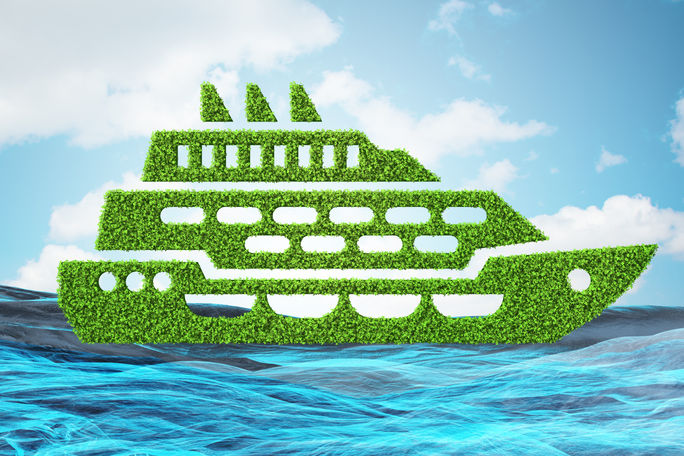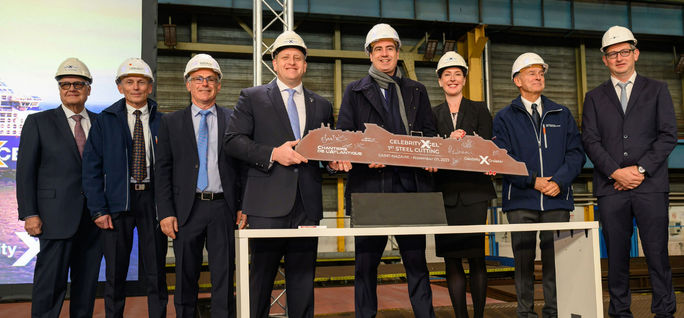Royal
Caribbean Group has just issued its annual Seastainability
Report, highlighting the strides it has made in its pursuit of
delivering exceptional vacation experiences while championing environmental
responsibility. Propelled forward by its SEA the Future initiative,
the company continues to forge ahead in its commitment to preserving the
planet, empowering communities and pushing innovation forward.
Last year, the
Group made significant headway in terms of reaching its net zero emissions objective,
accomplishing over 50 percent of its carbon intensity reduction goal. The
company also conducted successful biofuel trials throughout Europe and pioneered
the maritime industry's first waste-to-energy system onboard a vessel.
"I am proud
to share the encouraging results from our SEA the Future efforts in our annual
Seastainability Report and our first Community Impact Report, which underscore
the strength of our commitment to the environment, the communities we visit, and
our people," Jason Liberty, president and CEO, Royal Caribbean Group, said
in a statement. "Marking the halfway point to our carbon intensity target
is a key milestone that builds on our history of innovation and collaboration
as we continue driving forward solutions that advance the industry's net zero
future."?
In addition to its
Seastainability Report, the company released its inaugural Community Impact
Report, delving into its initiatives throughout 2023 aimed at engaging
communities, celebrating its company culture, and bolstering economic
resilience in the destinations it visits.

Eco-friendly cruise ship concept. (Photo Credit: Adobe Stock/Elnur)
Highlights from
the reports include:
Sustaining the
Planet:
- Achieved a 6.8 percent reduction in
carbon intensity, surpassing the halfway mark of its double-digit
reduction target.
- Expanded its energy portfolio through successful biofuel trials,
affirming the viability of ��dropping in�� a certain amount of alternative
fuels without engine modifications.
- Increased local sourcing globally, resulting in a 37 percent
reduction in miles traveled, while simultaneously supporting the
communities in which it operates and curbing Scope 3 emissions.
- Contributed to marine species
protection through the Shellbank program, leveraging a genetic
technology program to aid in the conservation of critically endangered
sea turtles.
Energizing
Communities:
- Introduced Royal
Caribbean International's Artist Discovery Program,
spotlighting emerging Caribbean artists on board the line��s newest vessel,
Icon of the Seas.
- Developed tailored training programs
for Bahamian entrepreneurs participating in the Business Development
Centre's (SBDC) Royal Caribbean Kickstarter Program, designed to
invest in local tourism-related businesses.
- Unveiled the first accessible Star
Class suite on board Royal Caribbean International's Icon of the Seas.
Accelerating
Innovation:
- Implemented the first at-sea
waste-to-energy systems on board Silver Nova and Icon of the Seas.
- Commenced construction on Celebrity
Xcel, the world��s first tri-fuel methanol-capable ship.
- Renewed its partnership with the University
of Miami's OceanScope program, which builds upon over 20 years of
ocean science research bolstering ocean being conducted aboard Royal
Caribbean Group vessels.

Officials from Celebrity and Royal Caribbean Group celebrate Celebrity Xcel's steel-cutting ceremony. (Photo Credit: Celebrity Cruises)
With a
sustainability journey spanning over three decades, Royal Caribbean Group has
long been at the forefront of environmental stewardship in the cruise industry,
from pioneering its industry-leading recycling initiative, Save the Waves, to installing
the first Environmental Officer aboard a cruise ship.?
Today, the company
continues to develop imaginative new means of introducing guests to the most
alluring destinations on the planet in a way that reveres and safeguards the
world��s oceans, and benefits the communities it visits.?
Today, the company
continues its legacy of innovation while advancing towards its Destination Net
Zero ambition, aiming for net zero emissions by 2050. Presently, the Group is
intensely focused on bolstering energy efficiency, treatment of used water and
keeping waste out of landfills. Via multiple methods, the company is advancing
toward its Destination Net Zero objective, with the aim of achieving net zero
emissions by the year 2050. ?
For the latest travel news, updates and deals, subscribe to the daily TravelPulse newsletter.
Topics From This Article to Explore